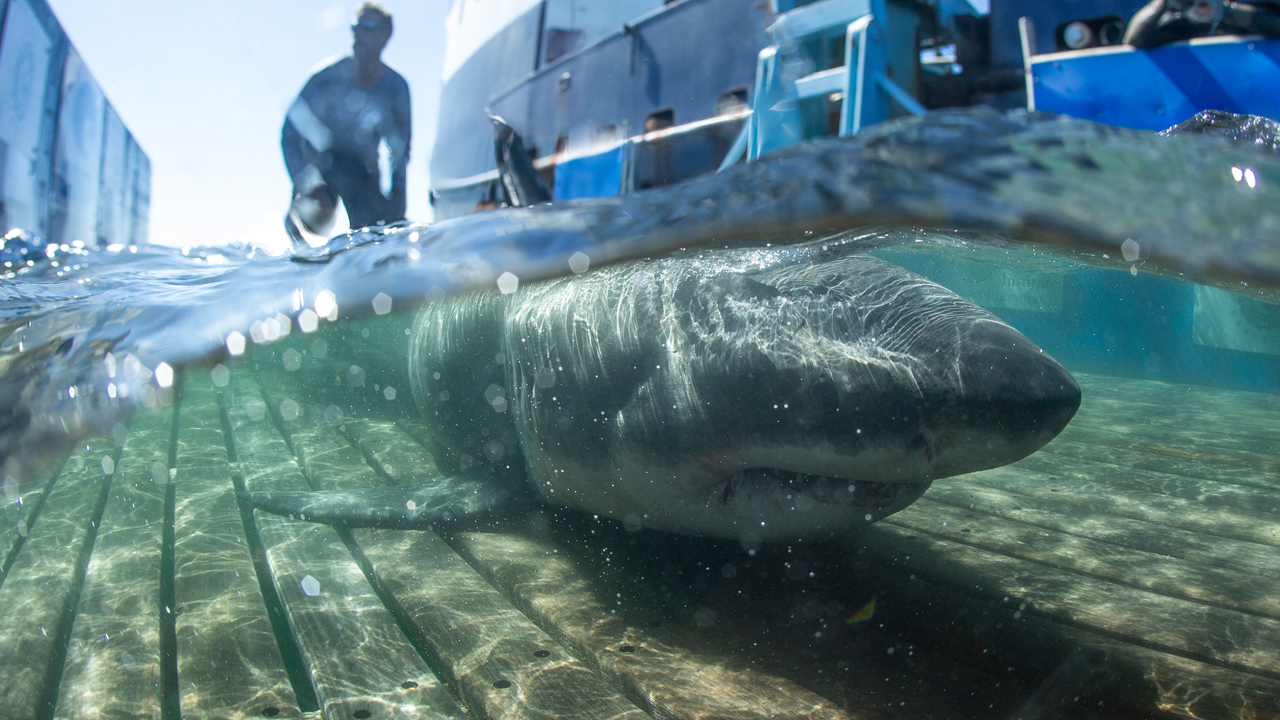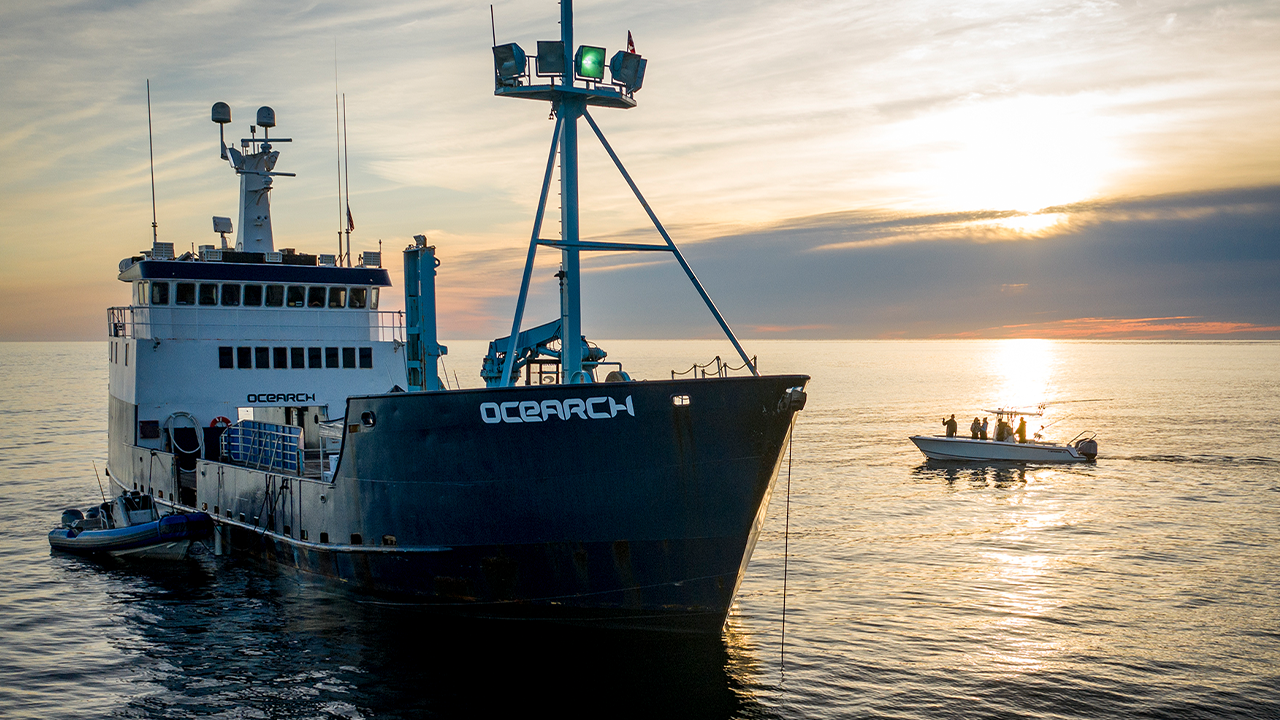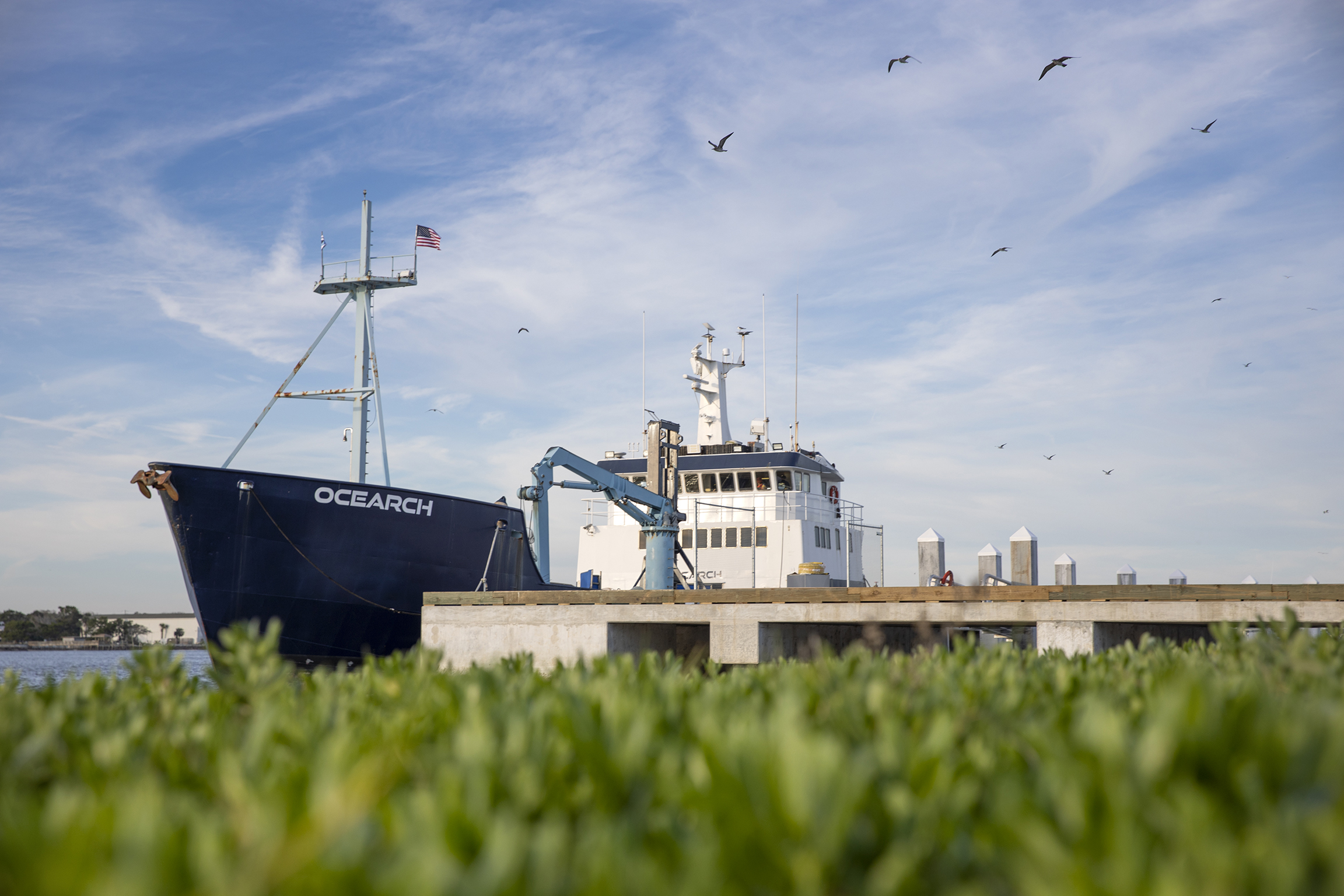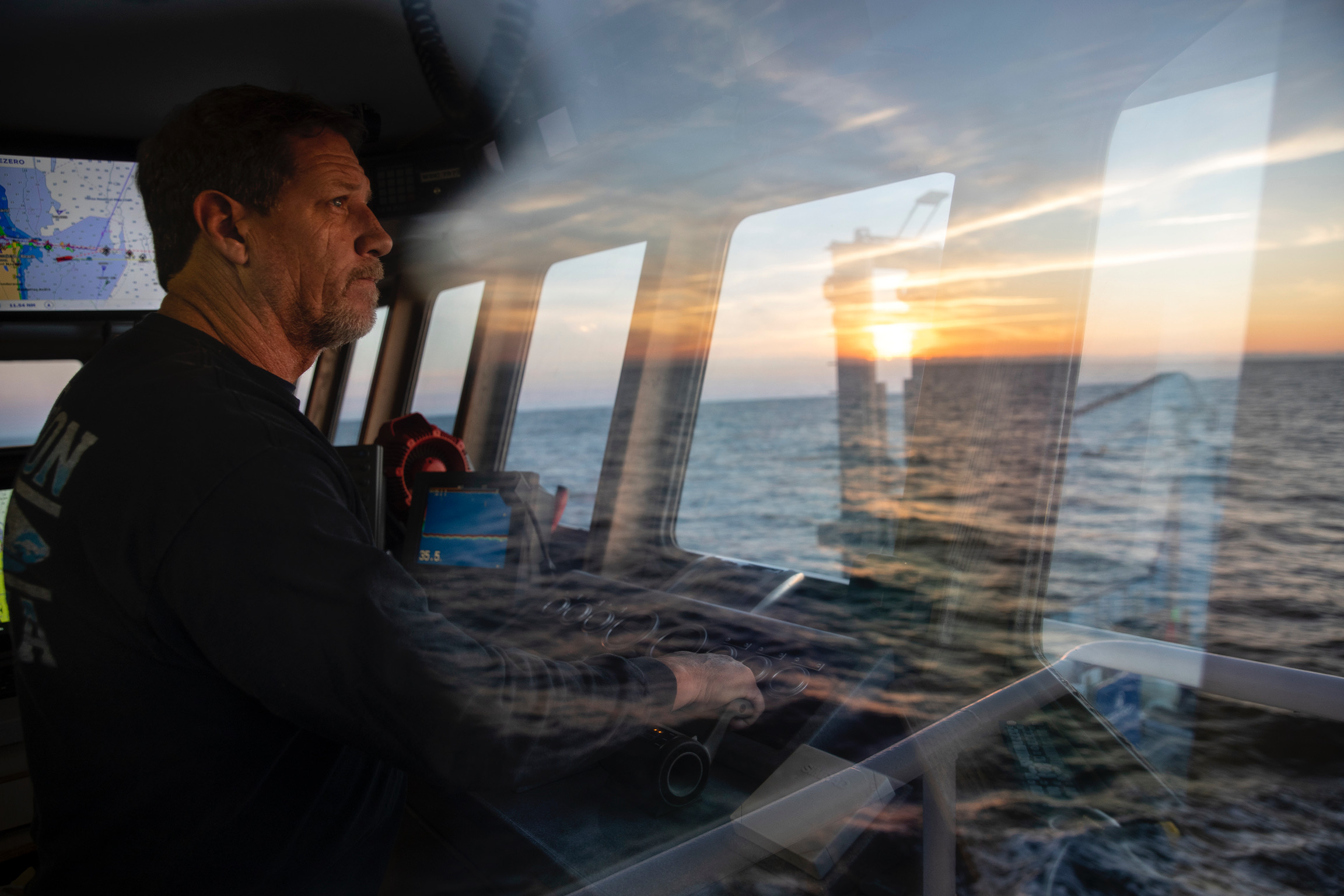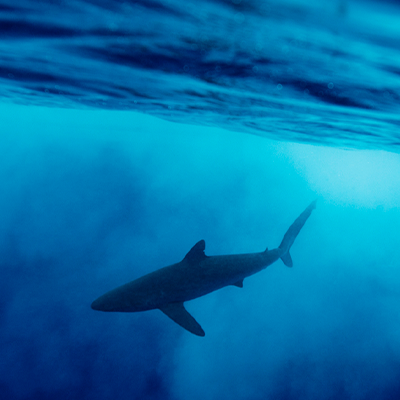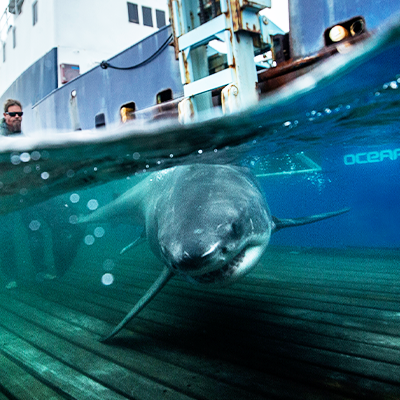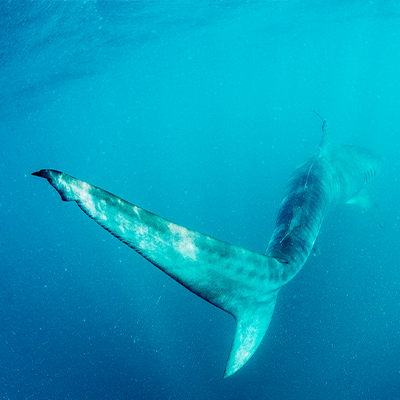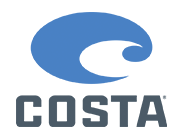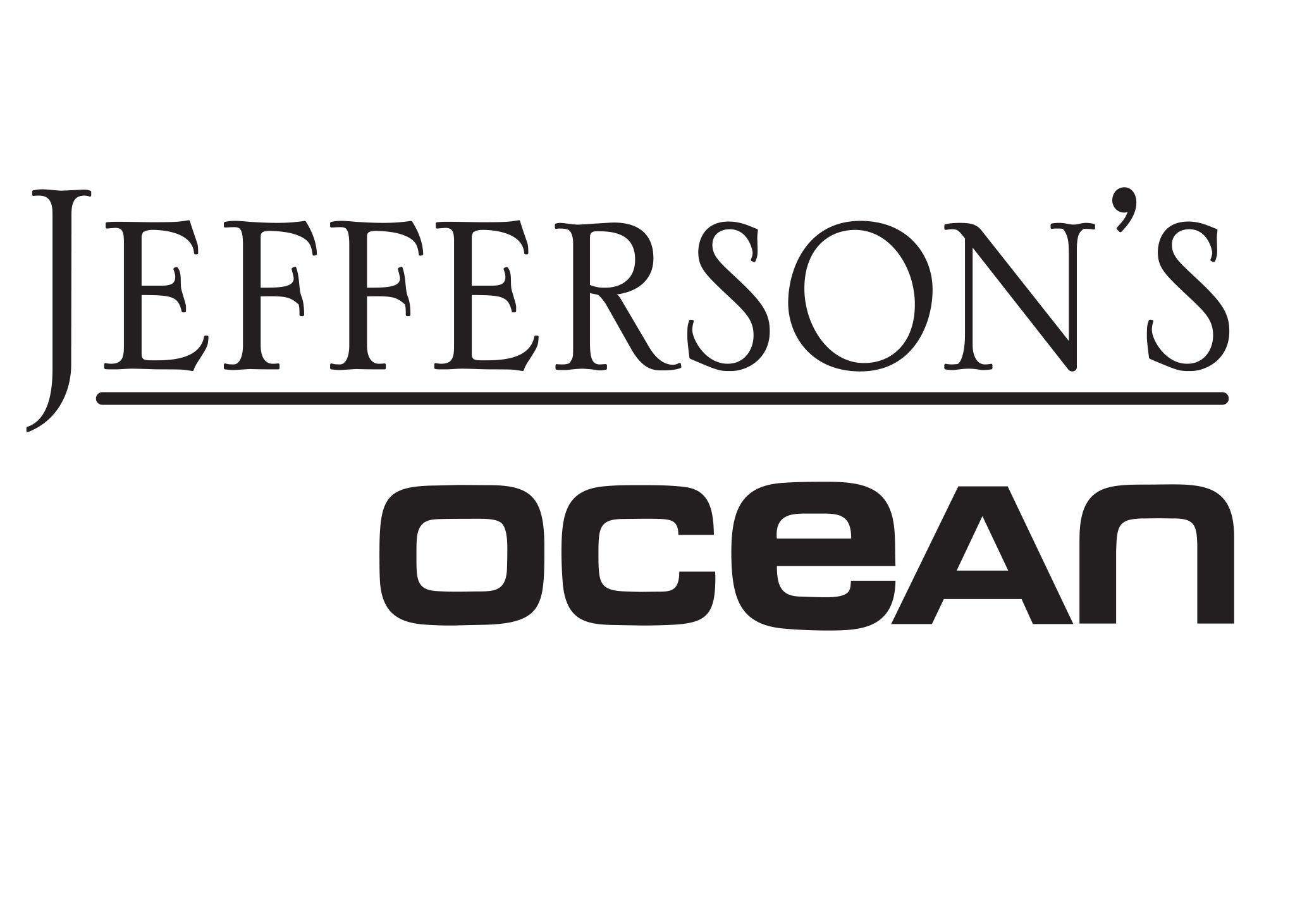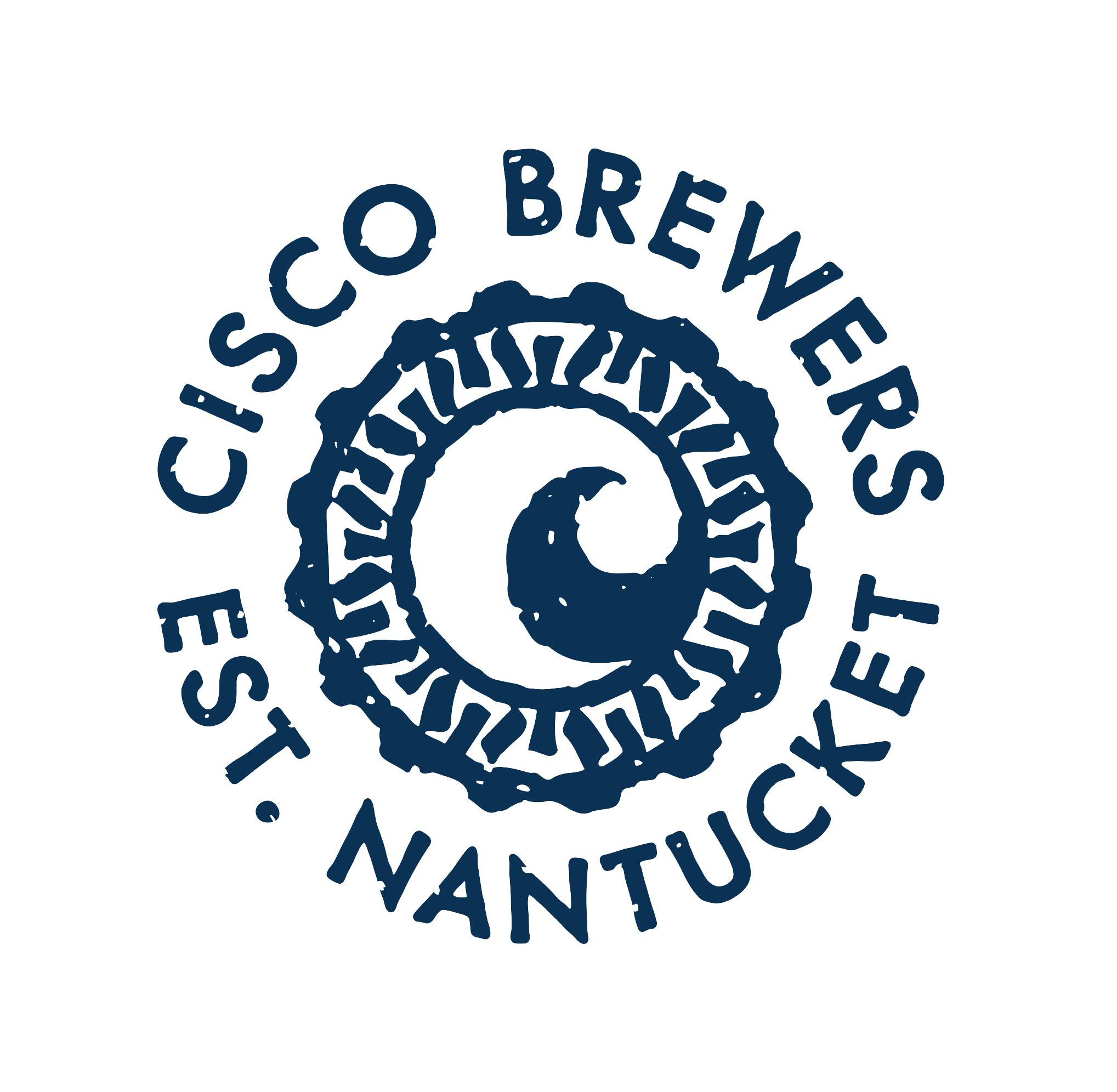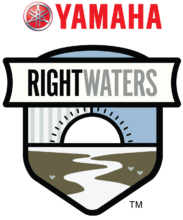OCEARCH is embarking on our 46th ocean research expedition to learn more about our white sharks as they migrate to the southeast United States to begin their winter residency.
The focus of this expedition is mature white sharks to identify what oceanographic features and diet resources are important to them and how they utilize the overwintering area. Examination of these adult animals, and particularly female white sharks during this time of year, may help us better understand the reproductive cycle for the species.
Our dedicated and collaborative team has successfully tagged 92 white sharks throughout the western North Atlantic, collecting data for up to 25 science projects that have enabled us to put together the pieces of the life history puzzle of the white shark in this region. Our puzzle is nearly solved, with just 8 sharks left to reach our goal of 100 sharks sampled, tagged and released in the western North Atlantic..
Expedition Southeast takes place from November 27 – December 15. Explore in real time with us @OCEARCH.
19
25
0
41
-
EXPEDITION SOUTHEAST WEEK 1 UPDATEWe kicked off Expedition Southeast with a launch event celebrating our new dock and future home in Mayport, FL alongside Jacksonville University and delegation from the State of Florida and City of Jacksonville. We’ve dealt with rough seas the first week, but better weather is on the horizon.
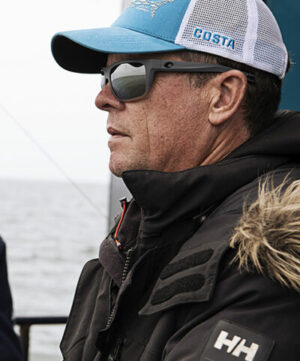
Fischer
OCEARCH
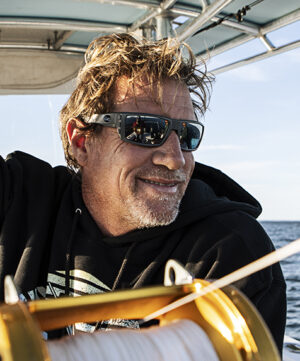
McBride
OCEARCH
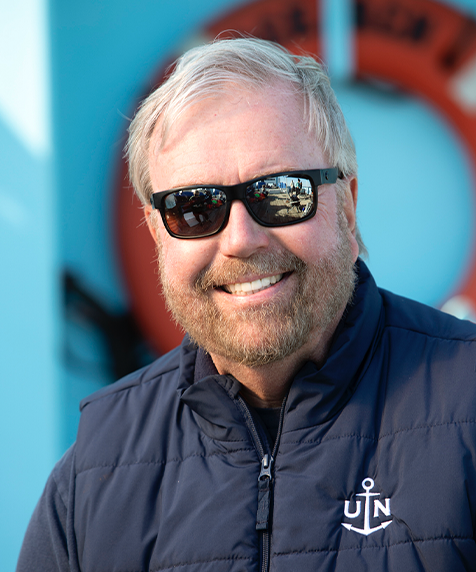
OCEARCH

OCEARCH
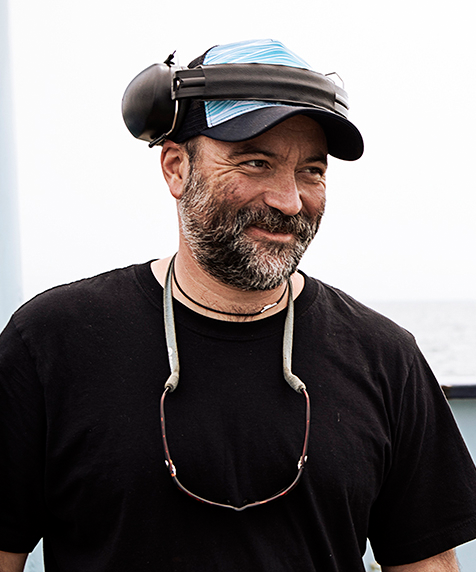
Dave Stevenson
OCEARCH

John Tyminski
OCEARCH
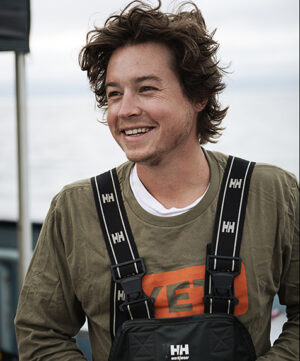
Lettieri
OCEARCH

Purcell
OCEARCH

Nicole Ralston
OCEARCH

Heather Barton
OCEARCH
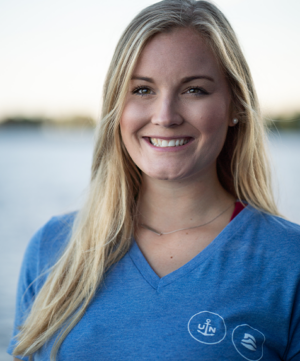
Paige Finney
OCEARCH
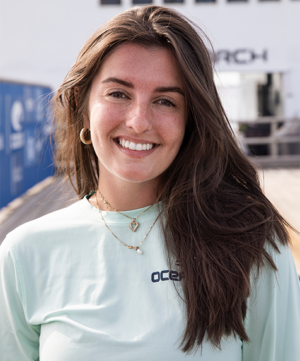
Avery McAlhany
OCEARCH
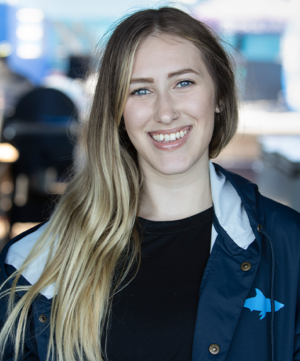
Alex Thomas
OCEARCH

Jacksonville University
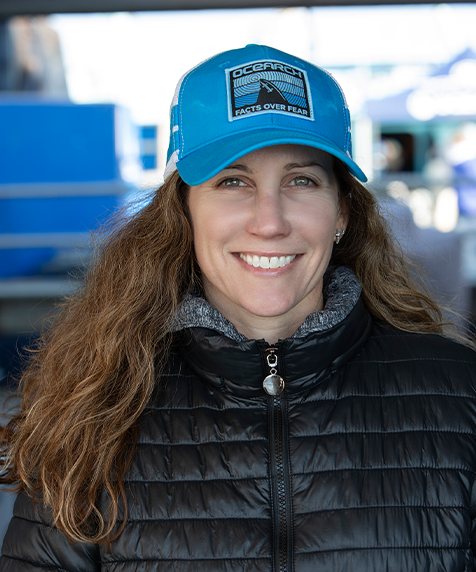
Jacksonville University
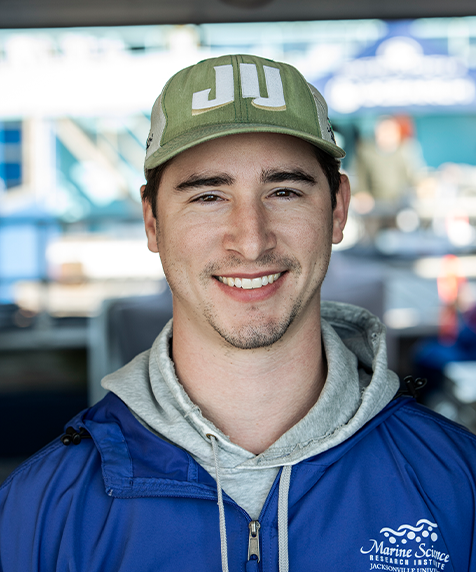
Jacksonville University
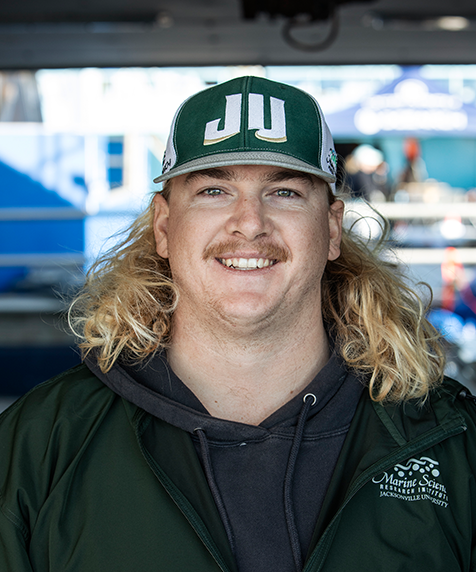
Jacksonville University

Emily Christiansen, DVM, MPH, Dipl. ACZM
North Carolina Aquariums

James Gillis, M.Sc., Ph.D.
South-East Zoo Alliance for Reproduction & Conservation, SeaWorld Parks & Entertainment
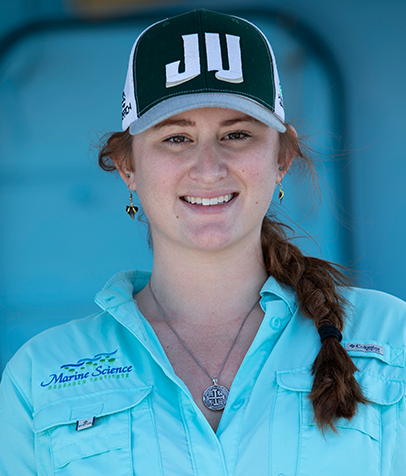
Mackenzie Horton
Jacksonville University, Student

Natalie Mylniczenko, DVM, Dipl. ACVM
Disney’s Animals, Science and Environment

North Carolina State University
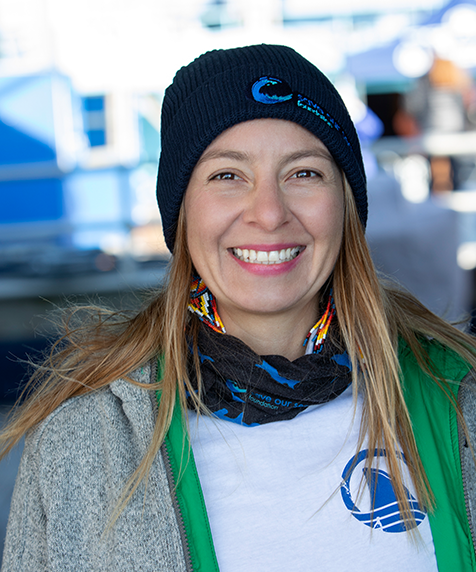
Florida International University
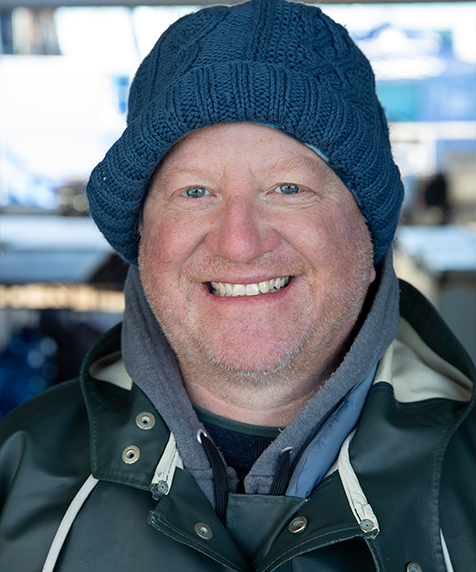
Erin Burge, Ph.D
Coastal Carolina University

North Carolina State University

Eric Ste Marie
University of Windsor
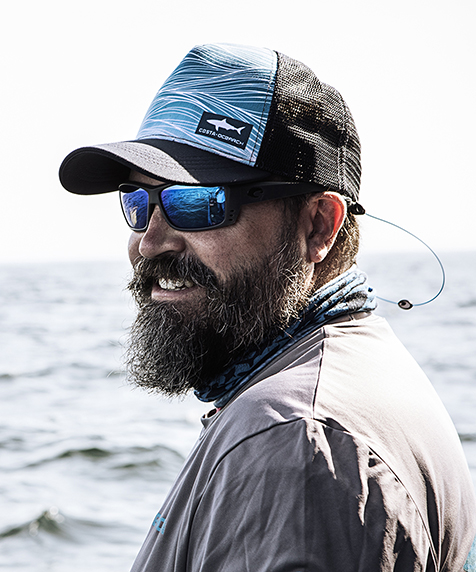
Mike Hyatt, DVM, Dipl. ACZM
New York Aquarium Wildlife Conservation Society

Dan Madigan, P.h.D
University of Windsor

Christopher Ross
ChrisRossPhoto.com
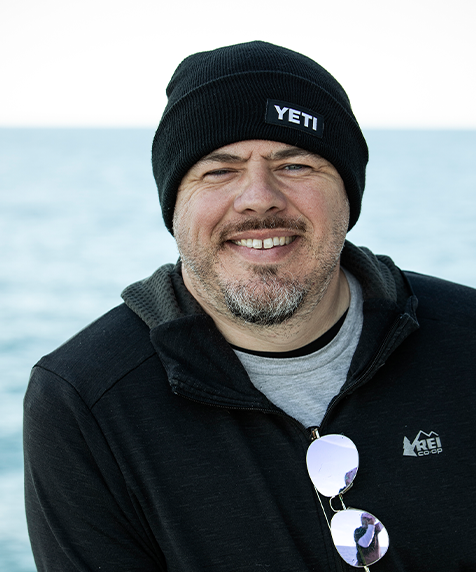
Matthew Avant

Jonathan Wesenberg

Daniel Skaff
OCEARCH
EXPEDITION STEM ACTIVITIES
Explore with us at home with these interactive activities for grades K-12! Build Science, Technology, Engineering, and Math skills (STEM) as you participate virtually with our team of collaborative scientists and fishing crew. For more information, reach out to our education team at education@ocearch.org
What is the Western North Atlantic White Shark Study?
This project began in 2012 and has been called the “Western North Atlantic White Shark Study”. The purpose of this project is to solve the life history puzzle of the Western North Atlantic White Shark by gathering the appropriate data that would tell us where this population migrates, feeds, mates, gives birth and more.
What type of studies do you expect to run during this expedition?
This expedition supports 24 individual studies for 45 principal investigators from 30 research institutions. In addition to putting 3 tracking devices on the animals, researchers will take a number of tissue, blood and other samples to learn even more about white shark biology. These samples can be used to understand the overall population health of white sharks in the Western North Atlantic, reproductive health, and even what types of antibiotics can be used if a human is bitten.
What type of samples do you expect to collect during this expedition?
The team will collect blood, mucus, parasites, muscle, fin clips, eye measurements, feces, urine, and semen, whenever possible. Ultrasound exams will also be performed to examine reproductive and heart health.
Can you describe your process for tagging sharks?
Sharks are caught and guided to the platform using a handline. Once the sharks are on the platform and hoses of water have been set to enable the flow of oxygen, they are tagged and sampled. The tagging, handling and sampling procedures employed during the expedition follow the standards of the Institutional Animal Care and Use Committees (IACUC.org) of each institution, which is made up of scientists and veterinarians.
Will the sample collection impact the sharks health?
While the tagging method, which has been used on sharks and other species for over a half-century may cause some level of brief discomfort, there is no scientific evidence that it impacts their behavior or survival post-release. In fact, data from the GLOBAL SHARK TRACKER™ provides strong evidence that the animals tagged using this method show long-term survival and long-distance migrations indicative of normal function and reproductive cycles.
What does the data from the OCEARCH Tracker tell us about sharks?
The data allows us to see the range and migration patterns of sharks in different parts of the world, and helps us uncover the areas in need of protection. The tracking data allows studies such as the examination of fine and broad-scale movements, habitat use, site fidelity, residency, and feeding behavior of white sharks. The data we’ve enabled so far has allowed scientists to figure out the mating and breeding sites of the species on the west coast of Mexico – Guadalupe Island. Scientists have also documented the first migration of Great White Sharks to the gulf and the mid-Atlantic ridge.
What happens to the data you've collected?
The data is shared in an open source environment with collaborating institutions that utilize it to conduct studies that are eventually published in peer-reviewed scientific journals. The papers, which can take 2-5 years to publish, are used to assist in policy decisions. So far, there have been over 75 papers published based on OCEARCH expeditions and resulting studies.
How can I follow the expedition?
Follow OCEARCH on Facebook, Twitter, Instagram (@OCEARCH), YouTube and TikTok for Expedition Northbound updates. You can also follow the sharks tagged during Expeditions by accessing the near-real-time, free online OCEARCH GLOBAL SHARK TRACKER™.
Who supports the expedition?
Costa Sunglasses, Yamaha RightWaters, SeaWorld, YETI Coolers, Ulysse Nardin, Cisco Brewers, Jefferson’s Bourbon, Jacksonville University, Landrys, Contender and individuals like you support the expedition through donations or making purchases in our online shop.







